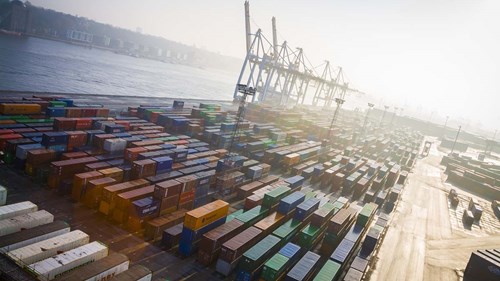Bundestag passes Fast-Charging Infrastructure Act
Early in the morning on 21 May, the German Bundestag (house of parliament) passed the Fast-Charging Infrastructure Act (Schnellladegesetz, SchnellLG – the “Act”). This alone underlines the importance of the Act, which aims to establish a nationwide network of rapid charging infrastructure for pure electric vehicles. To this end, the Federal Ministry of Transport and Digital Infrastructure is to award contracts for the construction of 1,000 150 kW+ fast-charging hubs in the medium and long-distance sector in Europe-wide public tenders.
The Bundestag’s Transport Committee approved the draft of the Act in a session on 19 May 2021 with the votes of the CDU/CSU, SPD and Bündnis 90/Die Grünen parliamentary groups (Bundestag document 19/29840). However, the Act will not be passed entirely in the form adopted by the federal government on 10 February 2021 (Bundestag document 19/28184). According to their own statements, the coalition parties CDU/CSU and SPD want to ensure that the Bundestag has more say in the matter and have therefore in the Transport Committee weakened the authorisations for the Federal Ministry of Transport and Digital Infrastructure to issue regulations provided for in the federal government’s draft.
The tenders carried out by the Federal Ministry of Transport and Digital Infrastructure under the Act are to be split into at least eighteen regional and, if necessary, additional nationwide lots and are to ensure that sufficient charging infrastructure is available nationwide by 2023 to increase the range of pure electric vehicles. The lots are to bundle economically attractive locations, such as conurbations, and less attractive locations and thus also promote the expansion of charging infrastructure in the long term. Locations on federal motorways are also to be expressly considered. However, within the framework of the possibilities under public procurement law, the existing filling station operators are to be given first access. It remains to be seen how this is compatible with the concession contracts of the existing filling station operators.
Lots can contain both specified sites and ‘search areas’. Within a search area, the potential bidder itself must find a charging station location. Companies can bid on one or more lots. Companies that are awarded the contract are legally obliged to install the charging points in precisely defined regions, within a certain time frame and in compliance with appropriate standards. Providers of existing infrastructure for whom this state-supported competition constitutes an economically unreasonable burden of particular hardship are to be able to sell their infrastructure to the Federal Ministry of Transport and Digital Infrastructure or demand compensation.
Overall, the federal government’s Master Plan for Charging Infrastructure envisages the construction of 1 million publicly accessible charging points by 2030. While the Act certainly provides an important impetus for this, the fact remains that, despite the weakened authorisation of operators to issue regulations, the decisive issue is the requirements specified by any regulations. This process is ongoing, and we will report again as soon as there are any new developments.










